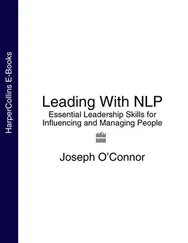Dale Carnegie - How To Win Friends And Influence People
Здесь есть возможность читать онлайн «Dale Carnegie - How To Win Friends And Influence People» весь текст электронной книги совершенно бесплатно (целиком полную версию без сокращений). В некоторых случаях можно слушать аудио, скачать через торрент в формате fb2 и присутствует краткое содержание. Жанр: Психология, на английском языке. Описание произведения, (предисловие) а так же отзывы посетителей доступны на портале библиотеки ЛибКат.
- Название:How To Win Friends And Influence People
- Автор:
- Жанр:
- Год:неизвестен
- ISBN:нет данных
- Рейтинг книги:3 / 5. Голосов: 1
-
Избранное:Добавить в избранное
- Отзывы:
-
Ваша оценка:
- 60
- 1
- 2
- 3
- 4
- 5
How To Win Friends And Influence People: краткое содержание, описание и аннотация
Предлагаем к чтению аннотацию, описание, краткое содержание или предисловие (зависит от того, что написал сам автор книги «How To Win Friends And Influence People»). Если вы не нашли необходимую информацию о книге — напишите в комментариях, мы постараемся отыскать её.
How To Win Friends And Influence People — читать онлайн бесплатно полную книгу (весь текст) целиком
Ниже представлен текст книги, разбитый по страницам. Система сохранения места последней прочитанной страницы, позволяет с удобством читать онлайн бесплатно книгу «How To Win Friends And Influence People», без необходимости каждый раз заново искать на чём Вы остановились. Поставьте закладку, и сможете в любой момент перейти на страницу, на которой закончили чтение.
Интервал:
Закладка:
They soon discovered that if one aspired to wear the captain's cap and navigate the ship of business, personality and the ability to talk are more important than a knowledge of Latin verbs or a sheepskin from Harvard.
The advertisement in the New York Sun promised that the meeting would be highly entertaining. It was. Eighteen people who had taken the course were marshaled in front of the loudspeaker - and fifteen of them were given precisely seventy-five seconds each to tell his or her story. Only seventy-five seconds of talk, then "bang" went the gavel, and the chairman shouted, "Time! Next speaker!"
The affair moved with the speed of a herd of buffalo thundering across the plains. Spectators stood for an hour and a half to watch the performance.
The speakers were a cross section of life: several sales representatives, a chain store executive, a baker, the president of a trade association, two bankers, an insurance agent, an accountant, a dentist, an architect, a druggist who had come from Indianapolis to New York to take the course, a lawyer who had come from Havana in order to prepare himself to give one important three-minute speech.
The first speaker bore the Gaelic name Patrick J. O'Haire. Born in Ireland, he attended school for only four years, drifted to America, worked as a mechanic, then as a chauffeur.
Now, however, he was forty, he had a growing family and needed more money, so he tried selling trucks. Suffering from an inferiority complex that, as he put it, was eating his heart out, he had to walk up and down in front of an office half a dozen times before he could summon up enough courage to open the door. He was so discouraged as a salesman that he was thinking of going back to working with his hands in a machine shop, when one day he received a letter inviting him to an organization meeting of the Dale Carnegie Course in Effective Speaking.
He didn't want to attend. He feared he would have to associate with a lot of college graduates, that he would be out of place.
His despairing wife insisted that he go, saying, "It may do you some good, Pat. God knows you need it." He went down to the place where the meeting was to be held and stood on the sidewalk for five minutes before he could generate enough self-confidence to enter the room.
The first few times he tried to speak in front of the others, he was dizzy with fear. But as the weeks drifted by, he lost all fear of audiences and soon found that he loved to talk - the bigger the crowd, the better. And he also lost his fear of individuals and of his superiors. He presented his ideas to them, and soon he had been advanced into the sales department. He had become a valued and much liked member of his company. This night, in the Hotel Pennsylvania, Patrick O'Haire stood in front of twenty-five hundred people and told a gay, rollicking story of his achievements. Wave after wave of laughter swept over the audience. Few professional speakers could have equaled his performance.
The next speaker, Godfrey Meyer, was a gray-headed banker, the father of eleven children. The first time he had attempted to speak in class, he was literally struck dumb. His mind refused to function. His story is a vivid illustration of how leadership gravitates to the person who can talk.
He worked on Wall Street, and for twenty-five years he had been living in Clifton, New Jersey. During that time, he had taken no active part in community affairs and knew perhaps five hundred people.
Shortly after he had enrolled in the Carnegie course, he received his tax bill and was infuriated by what he considered unjust charges.
Ordinarily, he would have sat at home and fumed, or he would have taken it out in grousing to his neighbors. But instead, he put on his hat that night, walked into the town meeting, and blew off steam in public.
As a result of that talk of indignation, the citizens of Clifton, New Jersey, urged him to run for the town council. So for weeks he went from one meeting to another, denouncing waste and municipal extravagance.
There were ninety-six candidates in the field. When the ballots were counted, lo, Godfrey Meyer's name led all the rest. Almost overnight, he had become a public figure among the forty thousand people in his community. As a result of his talks, he made eighty times more friends in six weeks than he had been able to previously in twentyfive years.
And his salary as councilman meant that he got a return of 1,000 percent a year on his investment in the Carnegie course.
The third speaker, the head of a large national association of food manufacturers, told how he had been unable to stand up and express his ideas at meetings of a board of directors.
As a result of learning to think on his feet, two astonishing things happened. He was soon made president of his association, and in that capacity, he was obliged to address meetings all over the United States. Excerpts from his talks were put on the Associated Press wires and printed in newspapers and trade magazines throughout the country.
In two years, after learning to speak more effectively, he received more free publicity for his company and its products than he had been able to get previously with a quarter of a million dollars spent in direct advertising. This speaker admitted that he had formerly hesitated to telephone some of the more important business executives in Manhattan and invite them to lunch with him. But as a result of the prestige he had acquired by his talks, these same people telephoned him and invited him to lunch and apologized to him for encroaching on his time.
The ability to speak is a shortcut to distinction. It puts a person in the limelight, raises one head and shoulders above the crowd. And the person who can speak acceptably is usually given credit for an ability out of all proportion to what he or she really possesses.
A movement for adult education has been sweeping over the nation; and the most spectacular force in that movement was Dale Carnegie, a man who listened to and critiqued more talks by adults than has any other man in captivity. According to a cartoon by "Believe-It-orNot" Ripley, he had criticized 150,000 speeches. If that grand total doesn't impress you, remember that it meant one talk for almost every day that has passed since Columbus discovered America. Or, to put it in other words, if all the people who had spoken before him had used only three minutes and had appeared before him in succession, it would have taken ten months, listening day and night, to hear them all.
Dale Carnegie's own career, filled with sharp contrasts, was a striking example of what a person can accomplish when obsessed with an original idea and afire with enthusiasm.
Born on a Missouri farm ten miles from a railway, he never saw a streetcar until he was twelve years old; yet by the time he was fortysix, he was familiar with the far-flung corners of the earth, everywhere from Hong Kong to Hammerfest; and, at one time, he approached closer to the North Pole than Admiral Byrd's headquarters at Little America was to the South Pole.
This Missouri lad who had once picked strawberries and cut cockleburs for five cents an hour became the highly paid trainer of the executives of large corporations in the art of self-expression.
This erstwhile cowboy who had once punched cattle and branded calves and ridden fences out in western South Dakota later went to London to put on shows under the patronage of the royal family.
This chap who was a total failure the first half-dozen times he tried to speak in public later became my personal manager. Much of my success has been due to training under Dale Carnegie.
Young Carnegie had to struggle for an education, for hard luck was always battering away at the old farm in northwest Missouri with a flying tackle and a body slam. Year after year, the "102" River rose and drowned the corn and swept away the hay. Season after season, the fat hogs sickened and died from cholera, the bottom fell out of the market for cattle and mules, and the bank threatened to foreclose the mortgage.
Читать дальшеИнтервал:
Закладка:
Похожие книги на «How To Win Friends And Influence People»
Представляем Вашему вниманию похожие книги на «How To Win Friends And Influence People» списком для выбора. Мы отобрали схожую по названию и смыслу литературу в надежде предоставить читателям больше вариантов отыскать новые, интересные, ещё непрочитанные произведения.
Обсуждение, отзывы о книге «How To Win Friends And Influence People» и просто собственные мнения читателей. Оставьте ваши комментарии, напишите, что Вы думаете о произведении, его смысле или главных героях. Укажите что конкретно понравилось, а что нет, и почему Вы так считаете.












